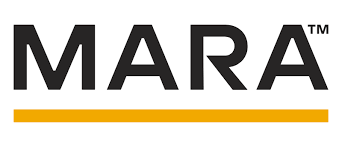
Project Rialto: Enhancing Cross-Border Payments with Wholesale CBDCs
The Bank for International Settlements (BIS) has announced the launch of Project Rialto, a groundbreaking initiative aimed at revolutionizing cross-border payments through the integration of a modular foreign exchange (FX) component and wholesale central bank digital currencies (wCBDCs). This initiative, developed in collaboration with the BIS Innovation Hub Eurosystem and Singapore Centres along with several central banks, seeks to address the longstanding issues of cost, speed, and complexity associated with traditional FX services.
Improving cross-border payments has been a key international policy goal and a priority for the G20. Current FX services facilitated by correspondent banks are often expensive, slow, and complex, exposing participants to significant liquidity, credit, and settlement risks. Project Rialto aims to mitigate these challenges by exploring decentralized solutions, wCBDCs, and interlinked payment infrastructures.
Named after the iconic Rialto bridge in Venice, symbolizing the connection and marketplace aspects of the initiative, Project Rialto intends to create a new automatic FX settlement layer using wCBDCs as a secure settlement asset. This layer could be deployed for interlinked instant payment systems or digital asset systems, significantly enhancing the efficiency and security of cross-border transactions.
FX is a crucial component of cross-border payments, contributing significantly to overall costs. According to the Financial Stability Board, FX accounts for 60% of person-to-person (P2P) payment costs globally and as high as 97% of person-to-business (P2B) payments. The substantial risks associated with FX settlement are evident, with settlement risks in the UK, Hong Kong, and Singapore surpassing the total capital of banks in these regions.
By integrating a modular FX component with wCBDC settlement, Project Rialto aims to reduce these costs and risks, providing a more efficient and secure framework for cross-border payments. The project’s modular nature also means it could potentially be adapted for other initiatives, such as Project Agorá, which involves the BIS and seven central banks in a cross-border payment collaboration.
Project Rialto builds on previous BIS projects exploring decentralized solutions and wCBDCs. For instance, Project Mariana, which involved the central banks of Singapore, France, and Switzerland, investigated the use of decentralized finance (DeFi) automated market makers (AMM) for FX on public blockchains in conjunction with wCBDCs. Similarly, Singapore’s Project Guardian has conducted multiple FX trials using various blockchain technologies and decentralized exchanges.
Project Rialto aims to push the boundaries of current cross-border payment systems, leveraging the potential of wCBDCs to create a more integrated and efficient global payment infrastructure. The use of wCBDCs as a settlement asset not only enhances security but also enables instant and cost-effective transactions, addressing some of the major pain points of existing systems.
As the project progresses, it is expected to provide valuable insights into how decentralized solutions, wCBDCs, and interlinked payment infrastructures can work together to improve cross-border payments. This could lead to significant advancements in global financial systems, benefiting both businesses and consumers by reducing costs and increasing transaction speeds.





